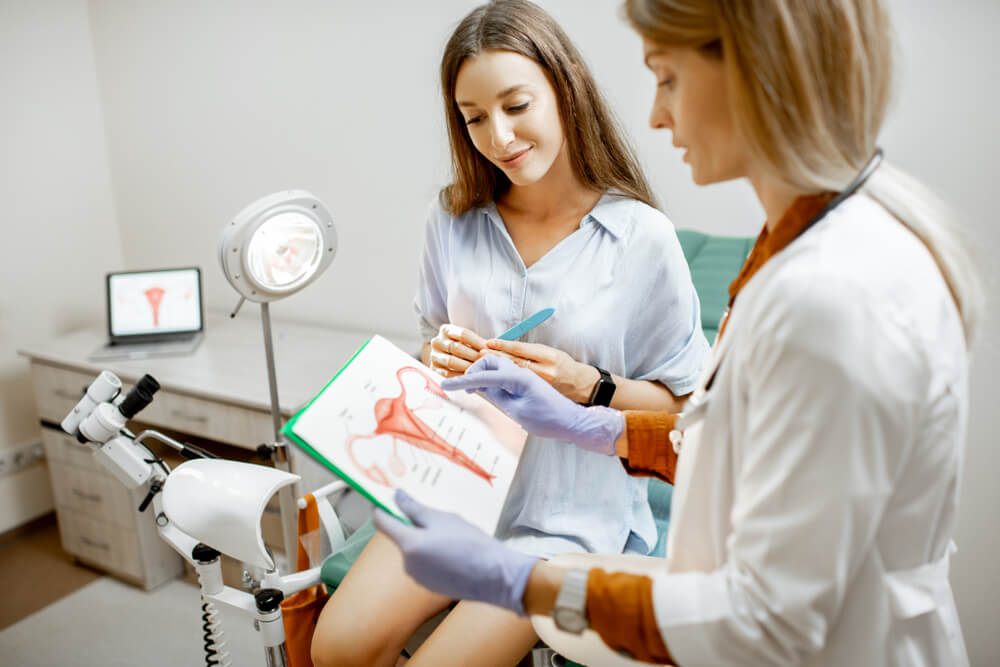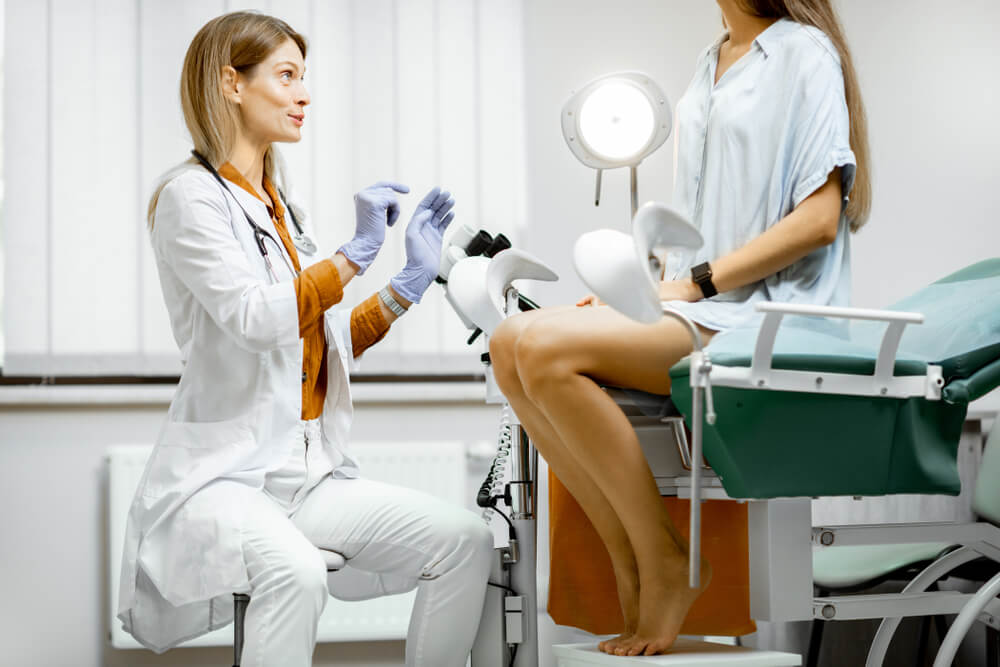Annual GYN (gynecological) exam is one of the most important exams a woman should have annually to check the status of her overall reproductive health. Most women have heard and/or undergone a PAP smear, but the GYN exam includes many more in-depth analyses and examinations that are crucial for your well-being.
Checking your reproductive health annually this way should commence from an adolescent age and continue until old age because every period in a woman’s life brings with it different changes and potential risks for serious health issues.
The medical professional performing the GYN exam can be either a gynecological doctor, a primary care doctor, a nurse, a certified midwife, and alike. The examination can include, but is not limited to:
- STI screening
- STI prevention tips
- HIV testing
- Menstrual issues
- Vaginal infections
- Contraceptives
- Pelvic pain
- Fertility
- Pre-pregnancy or preconception counseling
- Menopause
- Breast examination
- Urinary tract issues
- Sexual functioning
- Cancer screenings
- HPV consultation
- Counseling on healthy diets, exercise, mental health, and alike
If you live in Florida, there are different options for annual GYN exams in Boca Raton & Boynton Beach, FL, but as you should always opt for the best, visit Women’s Health Partners to get high-quality counseling and advice during your annual gynecological exam.

What Does an Annual GYN Exam Look Like?
The exam has several phases, and here we will explain what they are and what to expect.
- Firstly, the medical provider will talk with you about your medical and gynecological history, as well as the health status of your family members. Afterward, they will measure your blood pressure, heart rate, weight, and height. You might also be asked about your day-to-day life, work, family, diet, sexual activity, contraception, pregnancy, and overall health.
- After this, the medical professional will examine your heart and lungs, the thyroid gland, and feel the abdomen.
- Tests that can be done during a GYN exam are a pelvic exam, a PAP smear, a breast exam, STI screening, HIV testing, chlamydia, gonorrhea, hepatitis C testing, diabetes and cholesterol testing, and alike. Below we have described some of these in detail so your exam can go as smoothly as possible.
Pelvic exam: There are three parts of the pelvic examination which include the exam of the vulva, the internal exam of the vagina and cervix, and the uterus and ovaries exam. When you are experiencing pelvic pain, this check-up is also done at the gynecological appointment to help you manage the pain.
During this procedure, you might also feel slight pelvic pain because the doctor can brush off cells from the cervix to examine them further. This is called a PAP smear. This test aims to see whether the cells from your cervix have any cancerous features. This is extremely important, and some women do it every year, or even twice yearly.
Pelvic exams are crucial for women’s reproductive health, so it is always recommended to start scheduling them as soon as a person becomes sexually active or when they are 21. It takes only a couple of minutes to do the exam, immensely benefiting the patients.
Breast exam: Examining the breasts is another crucial test that can help in the early discovery of potentially cancerous cells in the body. The exam is done while the patient lays on their back, and the medical provider either uses their hands to examine the breasts for lumps and irregularities or an ultrasound to see the inside tissue. You can also self-examine during a shower because it is crucial to check the status of your breasts often.
Mammography is another test that is done to check breast health, but it is recommended for older women (40-49 years of age) because, in younger women, the results can be false positives. All women after the age of 50 should do mammography once a year.
HIV testing: Every year, your chosen healthcare provider will first check with you whether any factors are putting you in a high-risk category for contracting HIV. This testing should be done at least once during your life, but if the risk factors indicate otherwise, the testing should be done more often.
STI screening: There are different types of sexually transmitted infections that a person can be screened for and tested for during a GYN exam, such as syphilis, hepatitis, herpes, chlamydia, gonorrhea, etc. It is recommended to do these tests annually, especially if the person is very sexually active, if they engaged in coitus with multiple partners, if they experience potential symptoms of STIs, and alike.
Counseling: Apart from testing and examining different parts of your reproductive system to ensure that your health is intact, the annual GYN exam also serves for counseling with a medical professional. This is the place where you can get information about pregnancy, contraception, STIs, and protection, and also, you can get preconception counseling which can help you decide whether you want to have a child or not and what to expect when expecting.

How to Prepare for a GYN Exam?
Knowing how to prepare for your annual GYN exam is essential, especially for women who will experience it for the first time. Here are some valuable pointers:
- Do not stress out – Stay as relaxed as possible because the more relaxed you are, the less uncomfortable the examination will be. Medical providers who will perform the exam are very experienced, and there is a variety of different stories and scenarios they saw and heard, so do not feel ashamed or embarrassed to share your story. This is a moment where you can get all the information you potentially need.
- Choose your doctor carefully, research the best clinics and doctors, and decide if you would feel better with a female or a male doctor. For some women, it is crucial to have a female doctor, so deliberate your options and choose the one you are most comfortable with.
- This is the time to ask anything you want to know. No topics are off the table because these consultations and examinations can literally save your life. Prepare the questions ahead so you do not forget anything, and feel free to ask anything you want to know because the medical staff is there to help you and offer helpful advice.
- Before scheduling your appointment, ensure you are not on your period because this will make the examinations a lot easier for you and the medical professionals. Also, try to avoid sexual intercourse and any creams and medications 48 hours before the appointment.
- Ensure you are hydrated before the exam because sometimes you also need to test your urine for potential infections.
Call Women’s Health Partners Now!
Schedule your annual GYN exam with us today! Our team of highly educated and acknowledged professionals is ready to lead you through your GYN exam, with all possible care and support, in a friendly and safe environment. Your GYN exam should not be a stressful experience but a pleasant one because you are deciding to take care of your reproductive health in the best way possible. You can count on us!





